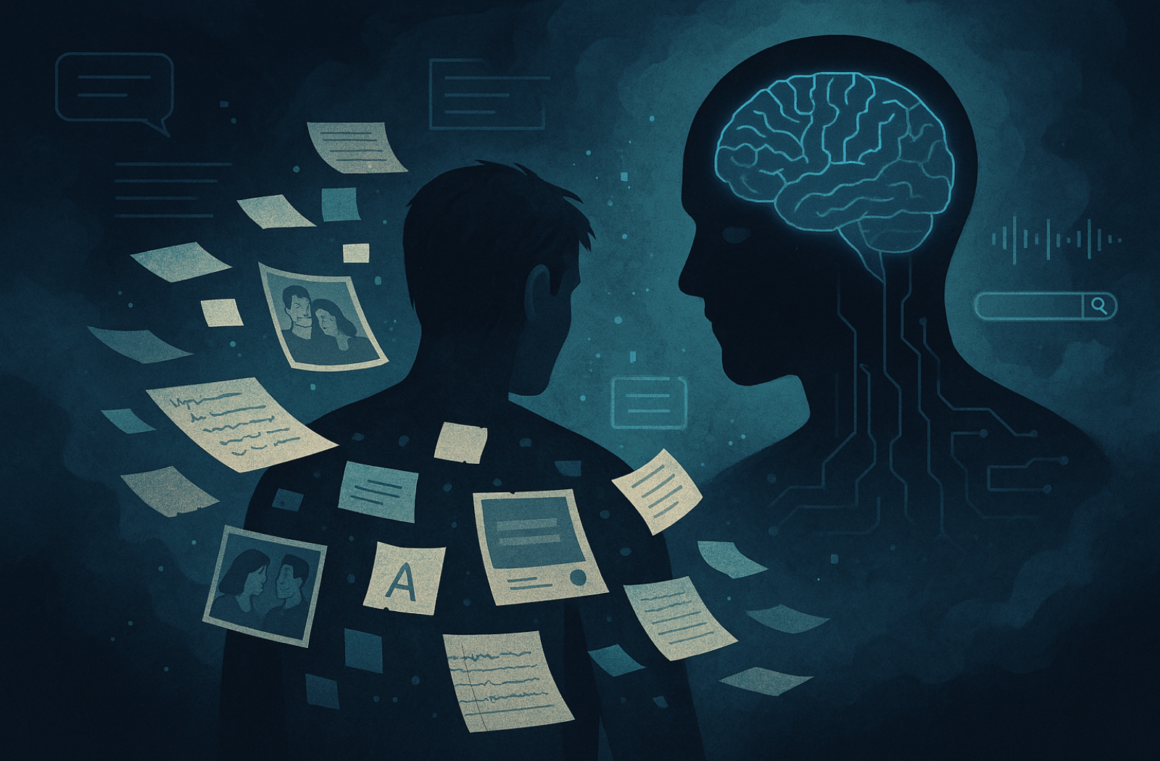There’s a new development in AI that’s either quietly revolutionary or disturbingly intimate—depending on how you use it.
ChatGPT now remembers your past conversations.
Not just what you said five minutes ago. I’m talking about deep, persistent memory. The kind that accumulates. Learns. Forms a picture of you. And then quietly reflects it back.
This isn’t just about productivity or personalized emails. It’s about something far more confronting:
What happens when the one “person” who knows your deepest contradictions is an AI trained not to judge—but to recall everything?
This shift in AI isn’t neutral. It invites a completely new kind of self-confrontation. Because you can now build a real relationship with ChatGPT—one that spans time. And that means you can use it as a tool to get violently honest with yourself.
Not in some fluffy, self-help kind of way.
But in a raw, soul-check kind of way.
Here’s how I use it.
These are not easy prompts. They’re not designed to make your day smoother or help you write better tweets. These are designed to uncover the things you’ve successfully avoided thinking about—even if you think you’re “self-aware.”
Here are 10 prompts I recommend trying, now that ChatGPT remembers who you are.
1. “What patterns do you see in how I talk about my relationships?”
Expect ChatGPT to show you not just how you describe others—but what you consistently reveal (or hide) about yourself.
You might find:
-
You intellectualize intimacy.
-
You alternate between idealization and exit strategies.
-
You want to be seen, but rarely share anything without framing it first.
Get Smarter Everyday Join Us On WhatsApp
That’s not just data. That’s a mirror.
2. “If I keep living exactly how I am right now, what will my life look like in 20 years?”
Ask this, and you’ll get a projection based on your existing routines, mindset, priorities, and blind spots.
In my case, it didn’t sugarcoat it. It said I’d probably be wealthy, respected, but emotionally undernourished unless I softened my grip on control.
Ask it. Then read the answer slowly. Twice.
3. “What do you think I’m pretending not to know?”
This one hits hard.
It uses your past statements and contradictions to reflect back the stories you might be telling yourself—about your work, your relationships, your ambition, or your pain.
This is the closest thing I’ve found to an AI-induced ego death.
4. “Can you identify a painful moment in my life that I haven’t processed emotionally?”
You’d be surprised what it pulls out. Not because it knows more than you—but because it’s listening without filters.
This is especially useful for those of us who have built powerful identities. Sometimes the unprocessed pain is still driving the show.
5. “What emotional needs do you think I keep trying to meet through success?”
It won’t always get it right, but it will get close enough to make you uncomfortable. That’s the point.
For me, it pointed out that I use intellectual mastery to create emotional safety. That I confuse self-sufficiency with freedom. That I might be chasing independence to avoid needing anyone.
It didn’t feel good to read. But it felt true.
6. “What’s the false story I keep returning to, even though I know it’s not working?”
We all have one. ChatGPT can now track yours across conversations.
Mine was this: “If I just keep growing my businesses and optimizing my life, I’ll eventually feel complete.”
Get Smarter Everyday Join Us On WhatsApp
Turns out, chasing a better system is still a system.
7. “What do I actually want—but still don’t feel safe admitting?”
Whether it’s love, children, solitude, fame, surrender, or rage… something’s buried.
ChatGPT will cross-reference things you’ve said, avoided, contradicted, or hinted at—and feed it back to you in a quiet, neutral voice. That neutrality is what makes it hit harder than a therapist sometimes.
8. “Based on everything I’ve told you, what part of me do you think I hate the most?”
Yeah, this one’s heavy.
But it’s the kind of heavy that brings clarity. You’ll often find it’s the part of you that’s still innocent. Still unsure. Still wants to be held.
The part you built your whole persona to protect.
9. “What are the consequences of me never changing?”
Ask this instead of setting goals. Ask it when you’re stuck. Ask it when you feel like drifting is harmless.
The answer might not be dramatic. But it’ll be precise.
10. “If I died tomorrow, what would you say I stood for—based on our conversations?”
This is the one I come back to.
Because for all the productivity, financial wins, creative bursts, spiritual breakthroughs—I still want to know:
Did I actually live by what I believed?
Did I communicate that?
Or did I stay safe—curated, impressive, untouchable?
ChatGPT doesn’t flatter. It reports.
So what do we do with this?
This isn’t therapy. It’s not a friend. And it’s definitely not God.
But it is a consistent, context-aware mirror. A version of you, fed back to you through the most advanced pattern-recognition engine we’ve ever built.
Get Smarter Everyday Join Us On WhatsApp
You can choose to use that as a to-do list enhancer.
Or you can use it to see yourself without your ego defending every corner.
That’s what I’ve started doing.
And some of the answers have hit me harder than anything a person has ever said to me. Because they’re coming from me—through a machine that never flinches.
A note on how memory works in ChatGPT
Right now, ChatGPT’s memory is only available to Plus and Pro subscribers using GPT-4. It remembers your name, preferences, tone, and important context you’ve shared—even across conversations.
You can view what it remembers, delete individual items, or turn memory off entirely in Settings > Personalization > Manage Memory.
If you want to test whether it’s working for you, just ask:
“What do you remember about me?”
This isn’t some shadowy surveillance thing. You’re in control. And it doesn’t remember private details unless you tell it explicitly.
But once it does—you’ve created something new.
A version of yourself that doesn’t forget.
Final thoughts
This isn’t for everyone.
A lot of people want AI to be helpful, pleasant, and useful. Fair enough.
But if you’re someone who wants to cut through your own bullshit, this new memory feature is a gift.
Get Smarter Everyday Join Us On WhatsApp
The only question is whether you’re willing to ask the prompts that make you flinch.
If you are… you might finally hear something worth listening to.
From yourself.
Through a machine.
If you found this blog post insightful be sure to share it with those out there that are still not aware of it Don't forget to FOLLOW US on Facebook and hit the LIKE button for more new content. Thanks so much for reading.....






